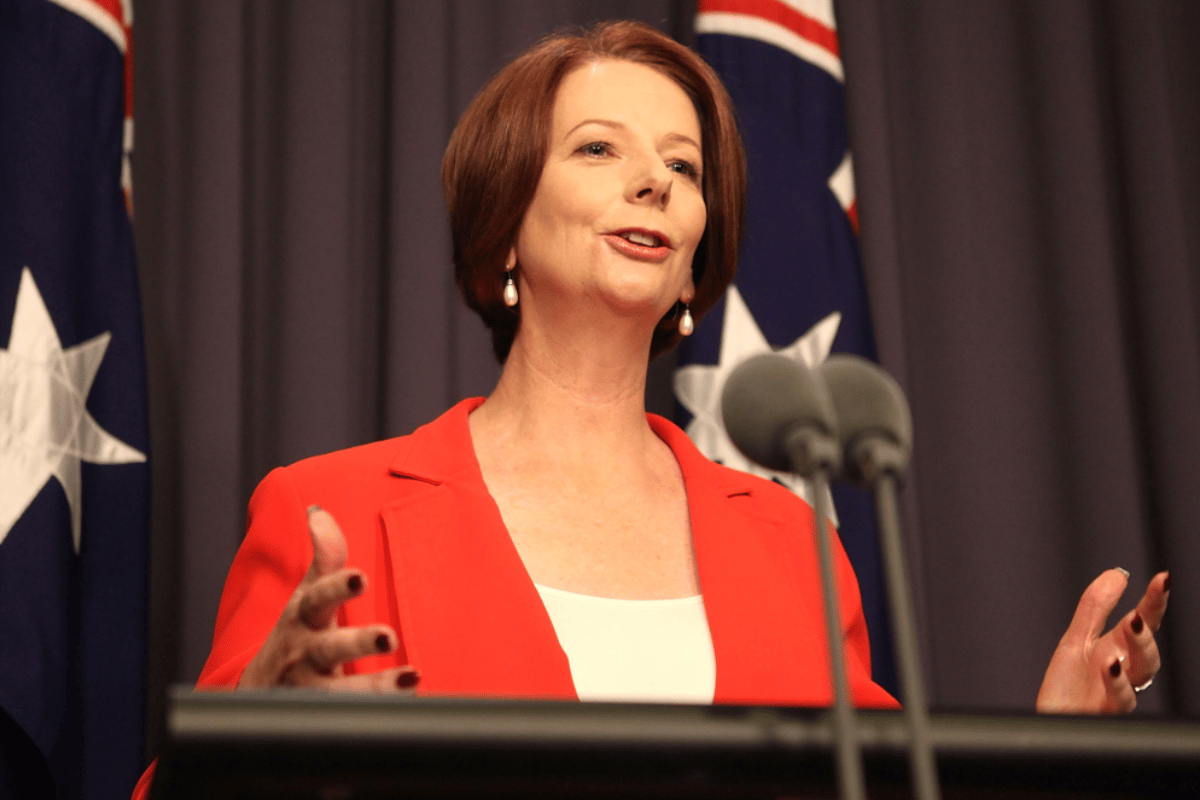
The Conversation is running a series of pieces on key figures in Australian political history, examining how they changed the country and political debate.
When Julia Gillard was sworn into office as Australia’s first female prime minister on a chilly Canberra morning in 2010, it seemed like the ultimate glass ceiling had been smashed.
But this momentous occasion was marred by the onslaught of sexism and misogyny Gillard endured from the opposition, and especially the mainstream media, over the next three years of her term.
Since she lost the prime ministership in 2013, Gillard has fostered a legacy that extends beyond parliamentary politics, with a focus on women’s rights, education and mental health.
Watch: If a man lived like a woman for a day. Post continues below.
The two Es: education and equality
Born in Wales in 1961, Gillard’s family moved to Australia in 1966. She grew up in Adelaide as the daughter of a nurse and aged care worker.
Gillard was educated at local public schools before studying at the University of Adelaide and then the University of Melbourne.
She told the Harvard Business Review last year her involvement in the student movement, protesting education cutbacks, was a formative experience:

Top Comments
It was simply a village "somewhere" and a small house with a dirt floor.
Inside that house was an educated girl enduring an unpleasant, abusive marriage.
With tears in her eyes she witnessed an Australian female PM in her parliament dishing up a serve to her male adversary and calling out his sexism & misogyny.
"I will not be lectured by this man" was (and still is ) a brave response by her at that time - but it was "about time".
Just as the "Me Too" and "Black Lives Matter" cries have found their time in history, Julia's had found hers after decades of bullying & abuse from her society's males who took offense at her daring to be "the boss of them".
That girl in the village had found her champion of women's rights living an unfamiliar life - but bearing a similar and suffocating struggle to be considered equal.
"Equality among Prime Ministers" may seem disconnected to the life of a village girl - but she found the connection.
Hopefully eight years later she's living a life much improved by hearing Julia's courageous words.